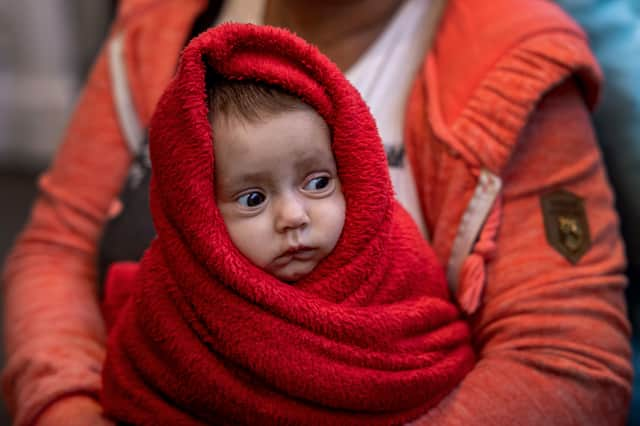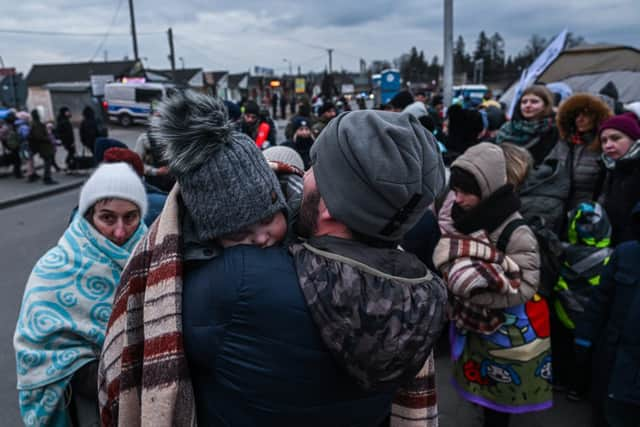DEC charities are providing emergency aid to the people of Ukraine - how to donate


The speed and the scale at which the crisis in and around Ukraine has developed has been overwhelming.
If not distraught, then so many of us are numb or disorientated that such a conflict has broken out in Europe - how can this be happening in our interconnected world in 2022? Yet tragically, it is.
Advertisement
Hide AdAdvertisement
Hide AdThe next reaction for many of us is to ask how best we can help. The complexity and fast-moving nature of conflict and the consequent mass exodus from Ukraine should give us pause.
What can I give, what should I give, will it make it to the people who need it most, the most vulnerable, whether they are cowering in the homes or basements in Kyiv or fleeing by train, bus, car or even on foot, such is their desperation to feel safer, to be safe?
This is why the Disasters Emergency Committee exists, to provide a quick, reliable and effective way for people here in the UK to help those who need humanitarian aid the most.
Please donate to the DEC’s Ukraine Humanitarian Appeal at dec.org.uk, or by texting SUPPORT to 70150 to donate £10 or by phoning 0370 60 60 900
Advertisement
Hide AdAdvertisement
Hide AdWhat is the DEC?
For nearly 60 years the DEC has brought together the leading international aid agencies across the UK, alongside the main broadcasters, to provide a clear way for the public to donate and to disperse those funds effectively.
So far, the reaction has been astonishing. More than £120 million raised across the UK in less than a week.
This money is already allowing our member agencies to rapidly increase their relief operations not only in Ukraine but in neighbouring Poland, Slovakia, Hungary, Romania and Moldova where people are now arriving in their tens of thousands every day.
The expertise of our member networks, like the Red Cross, Age International and their long-established links with local charities and partners means we are able to rapidly respond to what is needed, whether that be in or around Kyiv or in border towns and makeshift camps now springing up along Ukraine’s borders.
Advertisement
Hide AdAdvertisement
Hide AdWe are hearing that an overwhelming majority of elderly people in Ukraine either can’t or don’t want to leave their homes in the city. Our members will now prioritise supporting them in the best way they can.
In Poland and Romania, Save The Children are scaling up to help thousands upon thousands of children who have had to flee their home, often without their parents. They will provide spaces where these children feel safe as well as providing of food and water for those with nothing.


The best way to help Ukraine
We hope this message can get out to all those people keen to help but are currently thinking about sending what they have in their homes via local charities. However well-intentioned, that may not be the best way to help. What may appear to be the best response today may not be what the people caught up in the crisis might need today or in the days and weeks to come.
The costs of moving goods and the possible delays is already being recognised by Ukrainian and other diaspora groups here in the UK. The Polish Embassy in London has asked people to give money rather than sending physical goods to Poland.
Advertisement
Hide AdAdvertisement
Hide Ad